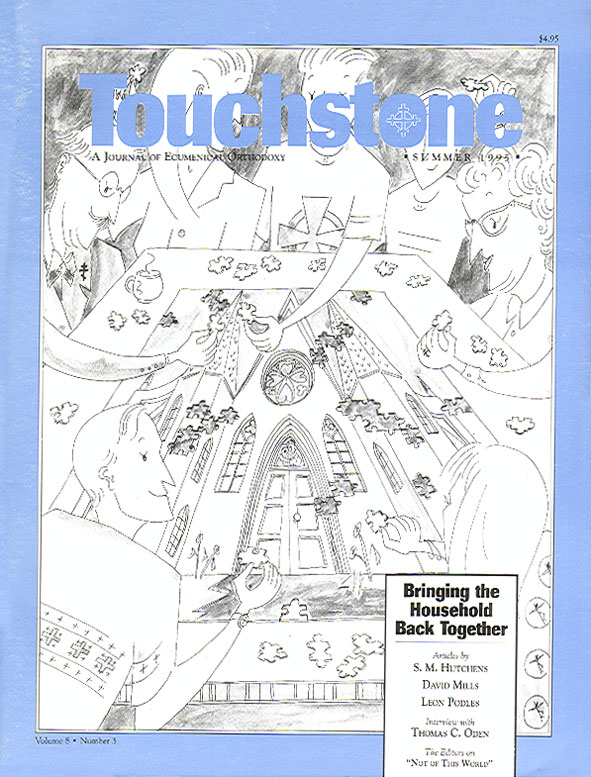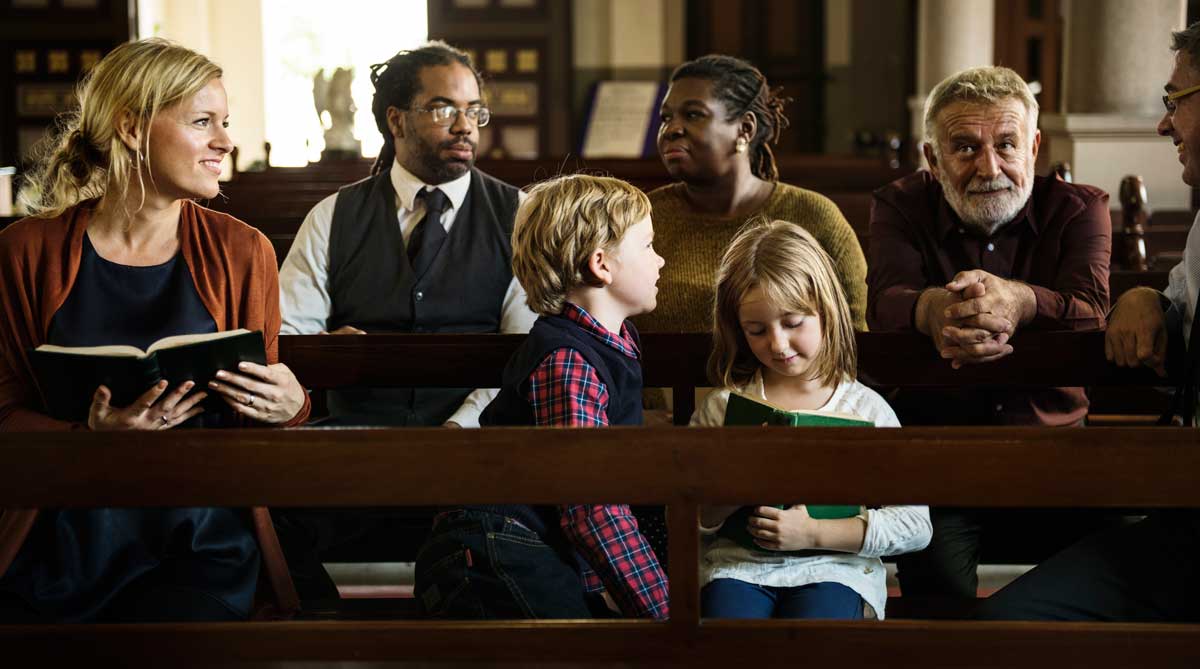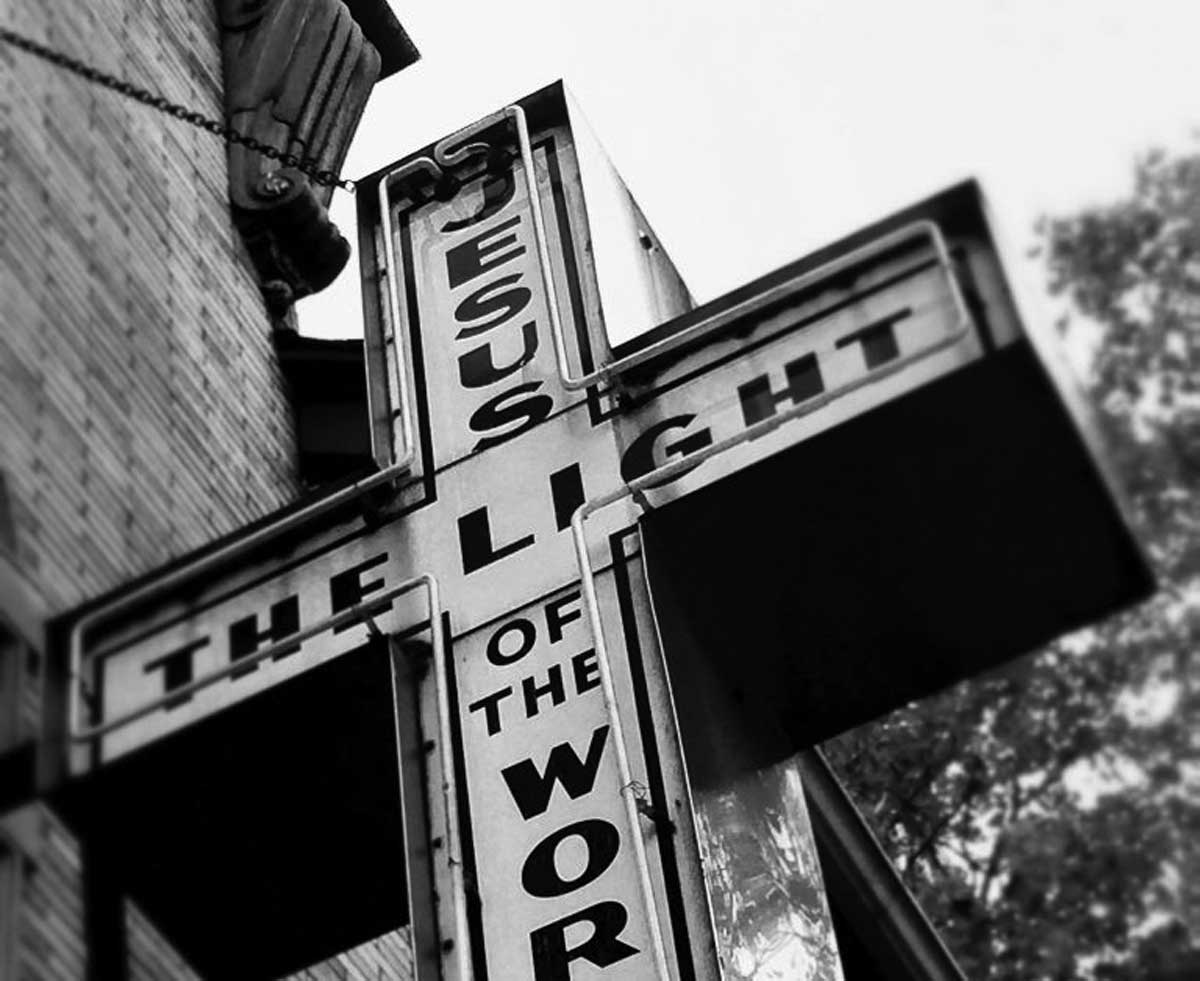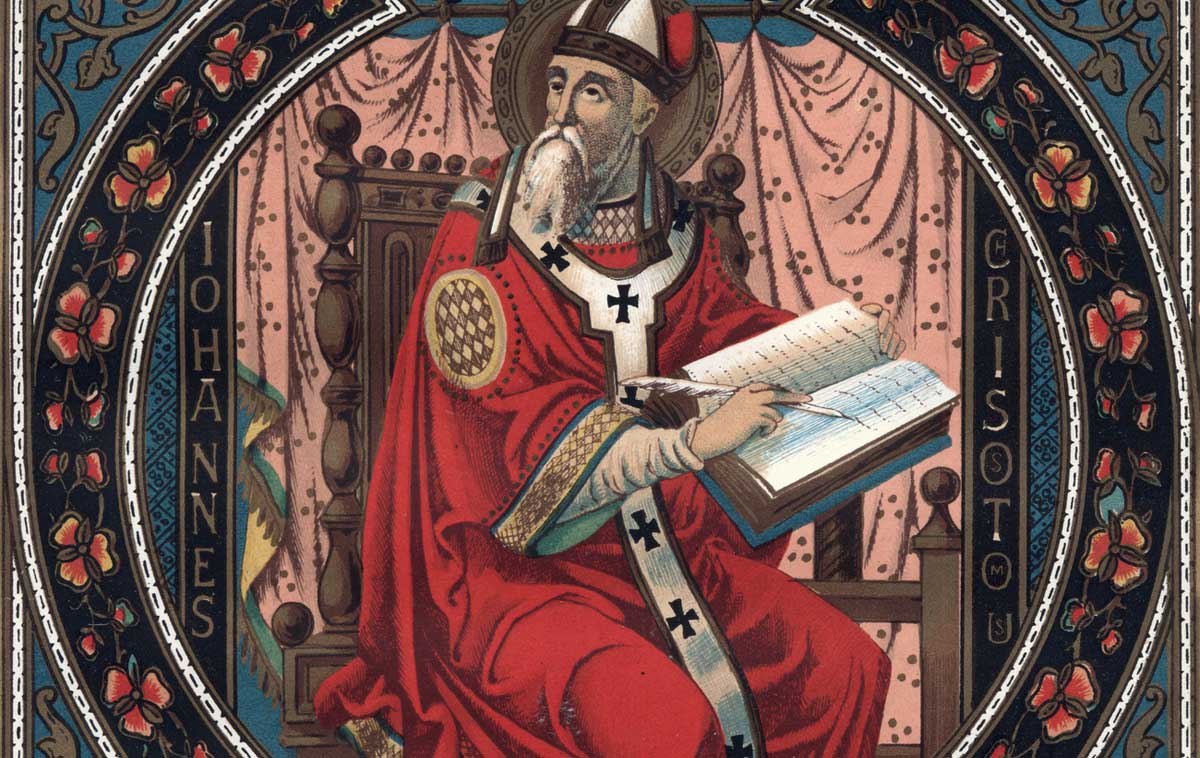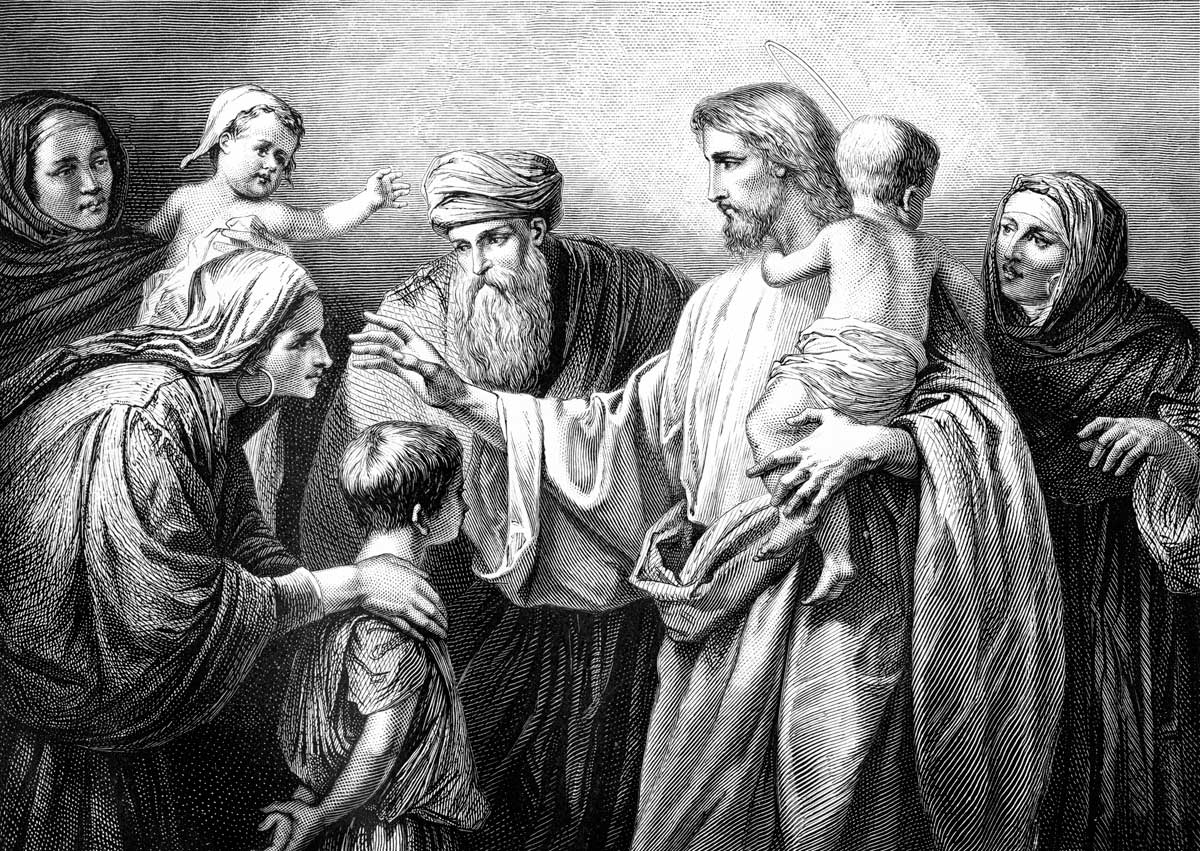Nothing to Celebrate
A Report from an Ecumenical Student Conference
by Mark Tooley
Which is more dangerous to a college student’s spiritual health: spring vacation in Florida or winter break at an ecumenical conference? Having attended a student jamboree organized by eight oldline Protestant denominations and a Catholic group early this year, I advise that a Ft. Lauderdale vacation may be the less harmful of the two.
“CELEBRATE! Gathering at the Crossroads” was advertised as an ecumenical occasion for college students and campus clergy to “celebrate” their “common unity in Christ Jesus.” In fact, it propagandized the next generation in radical politics and radical theology. Featured speakers included feminist theologians Rita Nakashima Brock, a “Re-Imagining Community” leader, and Edwina Gateley, who is affiliated with the dissident Roman Catholic group Call to Action.
Sponsorship and funding came from the American Baptist Church, the Disciples of Christ, the Episcopal Church, the Evangelical Lutheran Church in America, the Moravian Church, the Presbyterian Church (U.S.A.), United Church of Christ, and United Methodist denominations, plus the National Catholic Student Coalition. With this backing, the conference attracted 1,800 participants to St. Louis for five days.
The statement of purpose promised it would “not seek to conform or legislate belief.” In supposed fidelity to this pledge, plenary addresses and workshop leaders questioned orthodox beliefs about God, the Bible, and human sexuality. “This is really a diverse group of speakers. We had no agenda,” said Presbyterian Church (U.S.A.) campus minister Kathy Campbell, a conference organizer.
Re-Imagining for Students
The students’ Bible study leader was Rita Brock a professor at United Methodist-related Hamlin University at St. Paul, Minnesota, and a director on the Disciples of Christ missions board. Brock was a featured speaker at the 1993 and 1994 Re-Imagining conferences, and defended Re-Imagining’s exaltation of feminine deities such as “Sophia,” Eastern mysticism, and lesbianism before a nationwide audience on Ted Koppel’s “Nightline” last year.
Brock urged the students to “open up to new and unusual ways to speak about God,” asking them and the clergy to think of God as a “grieving mother.” She claimed “traditional cultures” like the Native American or Tibetan often have superior insights on spirituality. Brock compared Jesus’ baptism to a “tribal sweat lodge ceremony” and John the Baptist to a “Lakota spirit guide.” She praised “vision quests” and other altered states of consciousness.
Edwina Gateley was more flamboyant. She is a former lay missionary from Britain who now operates a mission for Chicago prostitutes. Strutting and gesturing effusively across the stage, Gateley declared, “I believe God lives about three inches from my belly button. If we’re in touch with the God-given seed in each of us then we know what we have to do.”
She explained that the “tiny, white British God” she took to Africa was “shallow” compared to the “big, big God” the “heathen” peoples there already knew. Gateley recalled the resistance of the Catholic hierarchy as she sought missionaries from “all religions” for a God who is “black and white, male and female, gay and straight.”
Students were amused and surprised when the former missionary shouted “F— you!” at them as she repeated the initial response of streetwalkers to her ministry. “We should all be open to God’s birthing within us,” Gateley said. “God is conceived in darkness.”
At a press conference, Gateley asked, “Who knows whether there may not be more written Scripture?” Students were enthralled with Gateley’s charisma and quickly bought out all copies of her book, A Warm Moist Salty God.
Brock and Gateley were not the only speakers to question the centrality of Christ. At a communion service, Rev. Kelvin Sauls, a United Methodist from United Theological Seminary in Dayton, Ohio, denied the uniqueness of the Incarnation. “God becomes flesh in each of us,” he said. “The Second Coming of Christ is right now.” He urged that the Eucharist “empower us” to build the reign of God now, instead of looking toward a future “eschatological event.”
Politics, Money, & Sex
CELEBRATE! speakers did not confine themselves to theology. Gateley laughingly chided the United States for not having a national health care plan. Brock compared upcoming changes in United States welfare policies to King Herod’s slaughter of infants. At her press conference, attended largely by students, Brock complained that “nobody from the left ever gets media attention. People regarded as left are really moderate.”
John Fife, former moderator of the Presbyterian Church (U.S.A.), told a denominational gathering about his criminal conviction for sheltering illegal immigrants from Central America during the 1980s. “Your parents will be pleased to know you spent all this money to listen to a convicted felon,” he smilingly noted. Fife criticized Ronald Reagan’s “lousy economists,” whose policies he believes a Republican Congress will repeat.
United Methodist theologian Tex Sample, a prominent proponent with his church for ordaining homosexuals, warned the students against being “suckers to a consumer culture” that “lets the poor take care of the poor” and says, “get yours and to hell with everybody else.”
In a workshop entitled “Justice for the New Millennium,” ecumenical minister Phil Harder of Portland State University affirmed that, “there are some gifts that Karl Marx gave us to help us with justice,” despite his sometimes “idolatrous” teachings. Presbyterian Minister Nancy Deever of Western New Mexico University led “A Spirituality for Healing the Earth” workshop. She urged students to quote the Bible frequently when trying to persuade churches to join the environmental movement, lest they think “you’re off the wall.”
Perhaps more off the wall were the sexuality teachings. Brock described her own local church as “gay/lesbian liberationist.” Defense of homosexuality was a central theme. Lutherans Concerned and Reconciling Congregations, a United Methodist group, both had display tables advocating a change in their denominations’ stance against same-gender sex. “Reconciling” invited students to a reception with the promise of “great fellowship” and “free food.”
Episcopal Priest David Selzer of the University of Minnesota led a “homophobia” workshop to “hear the concerns of gay/lesbian/bisexual/transgender students.” A video by Episcopal Bishop John Spong of New Jersey was featured. “It was supported by references to the Bible,” said one Episcopal student from Virginia Tech in response to Spong’s argument defending homosexual practices. Selzer said his diocese had asked him to lead the workshop.
A “Hand in Hand” workshop asked left-handed and right-handed participants to divide into groups, resulting in a 90/10 ratio. “What a coincidence,” said the student leader, who then claimed that 10–15 percent of the general population is homosexual. An “Evaluating Sexual Behavior” session was chaired by Catholic campus speaker Patricia Miller of St. Louis, who showed a film clip in which a homosexual changes the diaper of his bedridden male companion who is dying of AIDS. “Values are helpful to every sexual orientation,” said Miller.
Nevertheless, heterosexuality, even in marriage, was tolerated. Miller showed a clip from the movie Parenthood, in which comedian Steve Martin wrecks his car while receiving oral sex from his wife. “There is good sex in marriage too,” laughing students were instructed. “Deal creatively with your sexuality and make good decisions,” Miller said. “We mistake monogamy and exclusivity with faithfulness.”
The Aftermath of the Celebration
At a press conference for Celebrate! organizers, speakers and workshops were defended vigorously. Presbyterian campus ministry executive Clyde Robinson praised Brock for her “vibrant Christian faith” and warned against her being “demonized.” “I’ve read her book,” he proclaimed. Catholic Campus minister Fr. Jim Godin of the University of Wisconsin expressed indignation about questions regarding the conference’s stance on homosexuality.
In a subsequent radio-talk show discussion with me about the conference, Robinson admitted that organizers were aware of Re-Imagining’s controversial themes and had asked Brock to “tone down” her message for the student conference.
Official denominational publications have reported favorably about CELEBRATE! “I heard conservative to liberal views there,” said Disciples of Christ official Kathy Carson in The Disciple magazine. “Most students thought the conference was open and affirming of everyone.” Evangelical Lutheran Church in America official W. Robert Sorenson wrote, “According to those who attended, nothing controversial was raised.” Sorenson said that reports from the 40 Lutheran Campus Ministry staff who attended were all “positive.” Episcopal Higher Education Ministries official Thomas Chu defended the conference by writing, “We make every attempt to bring the Gospel to the young people we serve in a way that meets them in their world and their experience.”
Presbyterian, Methodist, and Lutheran spokesmen cited the distribution of Bibles and the recitation of the Apostles’ Creed “without changing a word” at the final morning session as proof of the conference’s orthodoxy. They also referred to a “Christ-centered” sermon by Rev. James Forbes of New York City’s Riverside Church. Forbes, who alternated between shouting and singing, did present a powerful motivational speech about “finding a project.” Jesus was recommended as a helpful companion in this endeavor.
Although probably the most moderate of the major speakers, Forbes’s talk fell into psychobabble about “self-esteem” and “our excellent DNA.” That the successor to William Sloan Coffin, pastor of America’s most famously liberal church, was cited to defend CELEBRATE! from conservative critics was ironic.
Negative coverage appeared in Christianity Today and Crisis, as well as publications of reform groups in the United Methodist, Presbyterian, Episcopal, United Church of Christ, and Disciples of Christ denominations.
“Help us counter the smear tactics!” exclaimed Shockley on the pages of an official United Methodist magazine in response to criticism of the conference. He praised speakers like Gateley for keeping “students on the edge of their seats.”
In response to my own press release about CELEBRATE! for the Institute on Religion and Democracy, the United Methodist News Service (UMNS) issued a special report titled “Who Is Mark Tooley?,” which linked me to “conservative religious magazines.” Garlinda Burton, who covered it for UMNS, accused me of defending a God who is “white, male, and North American.”
Religion News Service called Burton’s coverage “generous” for describing students who had sacrificed “mom’s home-cooked meals and late mornings in bed” for “exploration, prayer and celebration with like-minded Christians.”
In the End Betrayal
Having attended all five days of CELEBRATE!, I can attest to the good-natured sincerity of its student participants. Most seemed genuine in their faith and had all the theological sophistication of most people their age. Prayers, music, and performances by students were almost always more biblical than when conducted by older professionals. Still, the students enthusiastically absorbed the speakers’ remarks and eagerly bought their books. They heard a lot of talk about “God” and, at an event sponsored by their own churches, logically assumed its messages were Christian.
Less pardonable were the clergy and senior campus ministry officials (including Catholic Bishop Peter Rosazza) who swayed to, laughed with and applauded speakers like Brock and Gateley as they assaulted nearly every central doctrine of Christian orthodoxy.
Not only did these church leaders betray the hundreds of college students in attendance, they also betrayed the millions of church members whose collection-plate money helped make the conference possible.
Mark Tooley is a research associate with the Institute for Religion and Democracy in Washington, D.C.
Mark Tooley directs the United Methodist committee of the Institute on Religion and Democracy (www.ird-renew.org) in Washington, D.C.
bulk subscriptions
Order Touchstone subscriptions in bulk and save $10 per sub! Each subscription includes 6 issues of Touchstone plus full online access to touchstonemag.com—including archives, videos, and pdf downloads of recent issues for only $29.95 each! Great for churches or study groups.
Transactions will be processed on a secure server.
more on ecumenism from the online archives
more from the online archives
calling all readers
Please Donate
"There are magazines worth reading but few worth saving . . . Touchstone is just such a magazine."
—Alice von Hildebrand
"Here we do not concede one square millimeter of territory to falsehood, folly, contemporary sentimentality, or fashion. We speak the truth, and let God be our judge. . . . Touchstone is the one committedly Christian conservative journal."
—Anthony Esolen, Touchstone senior editor




